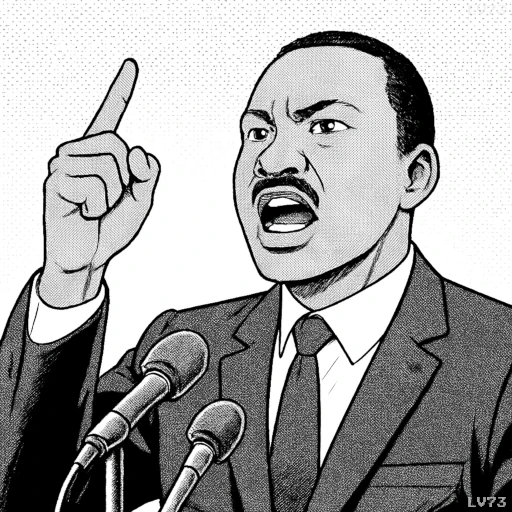“The limitation of riots, moral questions aside, is that they cannot win and their participants know it. Hence, rioting is not revolutionary but reactionary because it invites defeat. It involves an emotional catharsis, but it must be followed by a sense of futility.”

- January 15, 1929 – April 4, 1968
- African American
- Pastor and civil rights leader
table of contents
Quote
“The limitation of riots, moral questions aside, is that they cannot win and their participants know it. Hence, rioting is not revolutionary but reactionary because it invites defeat. It involves an emotional catharsis, but it must be followed by a sense of futility.”
Explanation
In this quote, King analyzes the ineffectiveness of riots as a tool for social change. He acknowledges that while riots may provide a form of emotional release for those who feel unheard or oppressed, they ultimately lack the power to bring about real, lasting progress. King argues that rioting is not truly revolutionary; instead, it is reactionary, responding to immediate grievances but often leading only to a sense of futility and defeat rather than meaningful outcomes.
King’s words reflect his commitment to nonviolent activism and his belief that sustainable change requires disciplined, organized efforts rather than spontaneous outbursts of violence. He understood that, while riots may draw attention to underlying issues, they seldom lead to constructive solutions and often invite backlash, undermining the goals of the movement. King believed that nonviolent protest—grounded in principles of justice, dignity, and strategic organization—could generate the moral and societal shifts necessary for true progress, rather than the temporary release of emotions that riots provide.
In today’s context, King’s insight reminds us that while anger and frustration are valid responses to injustice, lasting change requires careful planning, unity, and constructive action. Riots may provide a short-lived outlet for these emotions, but they rarely achieve the systemic transformations needed to address the root causes of social issues. King’s perspective encourages us to channel collective frustration into organized, impactful movements that aim for long-term change, fostering a sense of empowerment and purpose instead of futility. His words serve as a reminder that true revolution is rooted in strategic, principled actions that build a foundation for justice and progress, rather than reactionary responses that leave only fleeting impacts.
Would you like to share your impressions or related stories about this quote in the comments section?



